BY LIZ THOMSON | Pulitzer Prize-winning composer David Del Tredici who, for some 50 years, made his home at Westbeth Artists Housing, died on Saturday at age 86.
He had been stricken by Parkinson’s, becoming increasingly frail, though he made regular appearances at concerts. He made what would turn out to be his final musical outing last month at Columbia’s Italian Academy, where pianist Marc Peloquin and the Manhattan String Quartet gave the world premiere of Del Tredici’s string quintet “Ray’s Birthday Suit.”
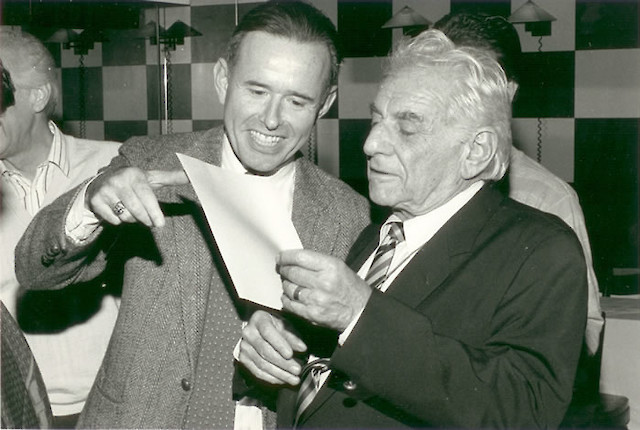
Peloquin, a New York City-based educator and award-winning pianist, is in the process of recording a multivolume CD set of Del Tredici’s complete piano music. He said that while the death was expected, it was also very sudden.
“This loss is profound, I have to admit, seismic for me honestly,” he said. “He is at peace. I am at a loss.”
The composer had long credited Peloquin with reviving his interest in the piano — which was how he started out, as a pianist.
David Del Tredici was born March 16, 1937, in Cloverdale, California. He began his career path by enrolling in the University of California, Berkeley as a piano student in 1955. He started his composition studies in Aspen three years later. French composer Darius Milhaud was encouraging of his first work, “Soliloquy.” Del Tredici came east to Princeton, from where he sent a tape of early settings of James Joyce writings to music of Aaron Copland.
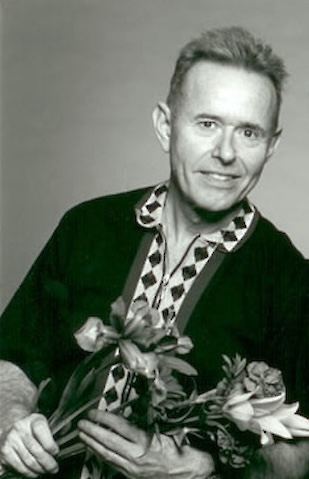
Copland described Del Tredici as “that rare find among composers — a creator with a truly original gift. I venture to say that his music is certain to make a lasting impression on the American musical scene,” he said. “I know of no other composer of his generation who composes music of greater freshness and daring, or with more personality.”
It was through Copland that Del Tredici received his first Tanglewood commission, and the two men remained friends throughout Copland’s life. (Copland was one of many composers to make his home at the Chelsea Hotel.)
Much of Del Tredici’s work was inspired by literature. Lewis Carroll’s “Alice’s Adventures in Wonderland” was a longtime preoccupation (“In Memory of a Summer Day,” part one of “Child Alice,” won him the Pulitzer), and in later life he embraced contemporary American poetry, much of it overtly gay. His settings of “My Favorite Penis Poems” did not immediately find favor with singers! In Joyce, a lapsed Catholic, Del Tredici recognized a fellow tortured soul whose inner conflicts found voice in dissonance and atonality. His early works employed Modernist techniques that he picked up from his teacher Roger Sessions, but he soon became a proponent of tonality — indeed, he is regarded as the father of Neo-romanticism in 20th-century music.
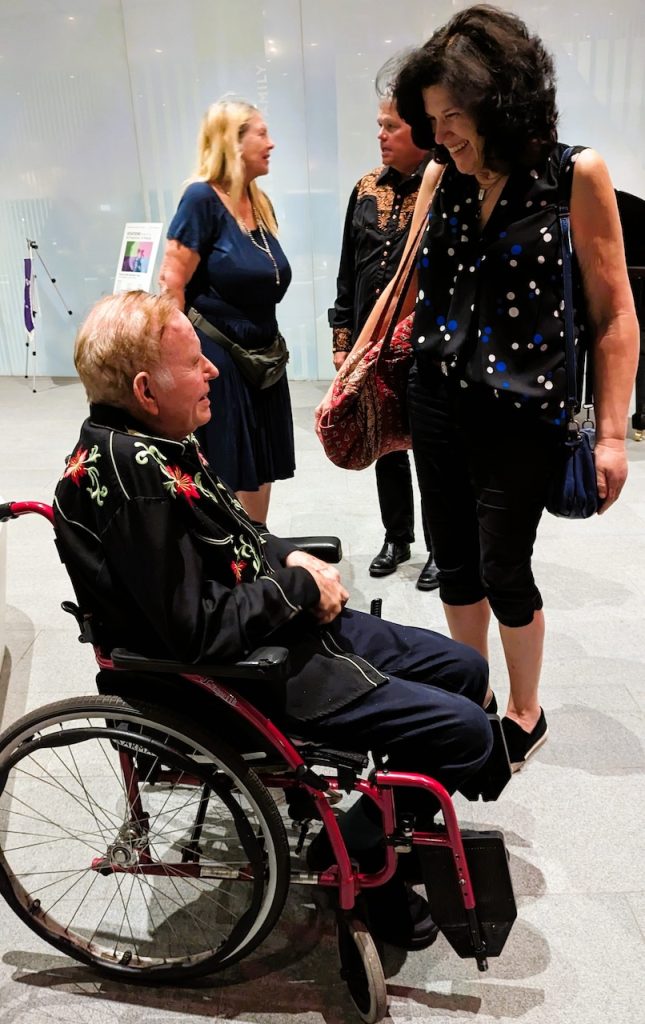
Leonard Bernstein, whose 70th birthday Del Tredici marked with a setting of verse by Joel Conarroe for voice, violin and piano, appointed Del Tredici composer in residence at the New York Philharmonic. As it would sadly turn out, it was the conductor’s last such appointment. Had Bernstein lived, it’s probable that Del Tredici would have received more high-profile commissions. Nevertheless, he composed works for most of the major American and European symphony orchestras, as well as countless chamber and solo works.
His “Herrick Oratorio,” premiered last May by Cantori New York under the direction of Mark Shapiro, in fact had its roots in a suggestion by me in 2019 of “A Mass for Greenwich Village.” Father Graeme Napier, of St. John’s in the Village church, put the idea to Del Tredici, whose eyes welled up at the suggestion. Nevertheless, he responded: “There are too many Masses!”
“He already had some Herrick settings done, or at least a bit worked,” Napier recalled. “So the oratorio idea came from wanting to do a substantial work, but using material, or at least ideas, already on the back burner.”
A keen musician who makes the arts a centerpiece of his church’s mission, Napier continued, “David loved having his music performed here — because of our wonderful acoustic and intimate space.”
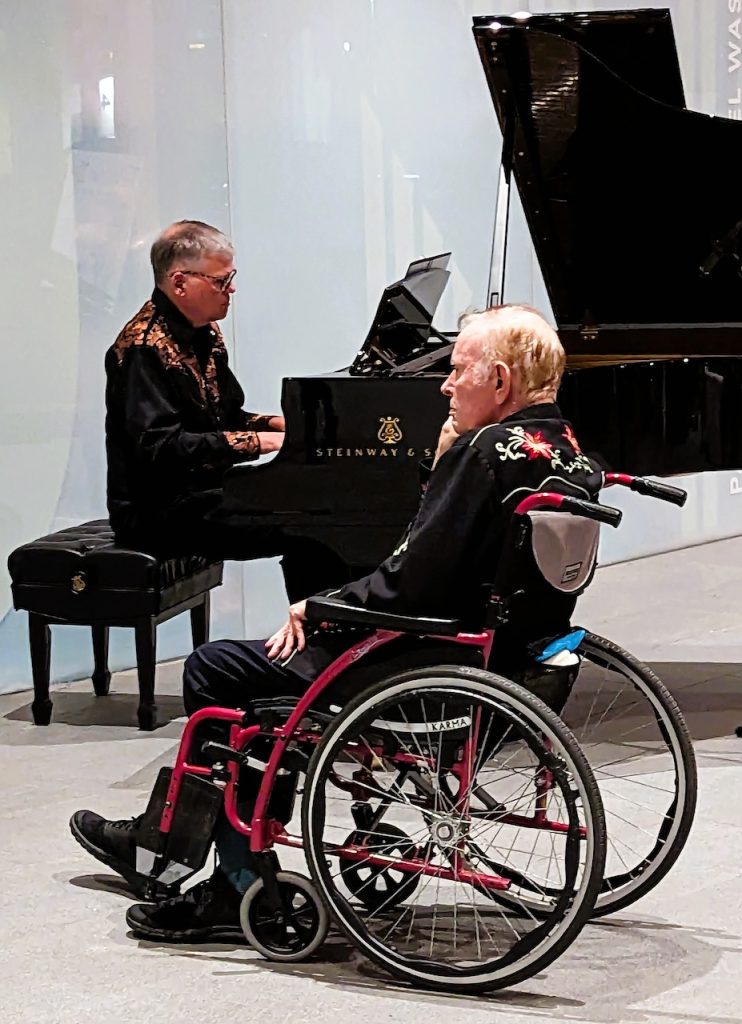
William Anderson’s Roger Shapiro Fund supported the commission.
“’Herrick’s Oratorio’ is one of the most remarkable large-scale choral works by an American composer,” he said. “I rate it up there with Andrew Imbrie’s ‘Adam.’ Imbrie and Del Tredici are both products of Princeton, where they both studied with Roger Sessions. David told me that his early Modernism is a resource for him. He’s always employing that body of knowledge, and we feel this clearly in ‘Herrick’s Oratorio.’”
COVID, and problems with rehearsing what turned out to be a challenging piece, meant that “Herrick’s Oratorio” was sadly not premiered at The Village Trip this September. But in 2021 we presented a concert of Del Tredici piano music at St. John’s in the Village, the composer present to hear Marc Peloquin play. And at this year’s Village Trip, he came for the closing “repetitions” of Erik Satie’s 18-hour piano relay “Vexations,” Peloquin closing the marathon, held in the lobby of N.Y.U.’s Paulson Center. Del Tredici had played at the piece’s 1963 East Village premiere overseen by John Cage. A short film has him speaking about the music.
(For a video of the “Vexations” performance at this September’s The Village Trip, click here.)
David Del Tredici believed firmly that the “purpose” of music was pleasure.
“I remember standing on a corner, sometime before I turned 5,” he said. “I looked up at the flowers and the sky, and suddenly had this overwhelming sensation of happiness that I would never truly grow up. I want to trap the ecstasy of life within my music; I want to create sounds so beautiful that time will stop.”
Peloquin said Del Tredici dared to be open and take risks.
“David dared to live and to compose in a way that combined the highest intellect and virtuosity with an openness to reveal the soul of his being,” he said. “He took risks without considering the reactions and repercussions of his many adventures.”
Thomson is the founder and joint artistic director of The Village Trip festival, which takes place for two weeks every September in Greenwich Village and the East Village. For more information, see TheVillageTrip.com.

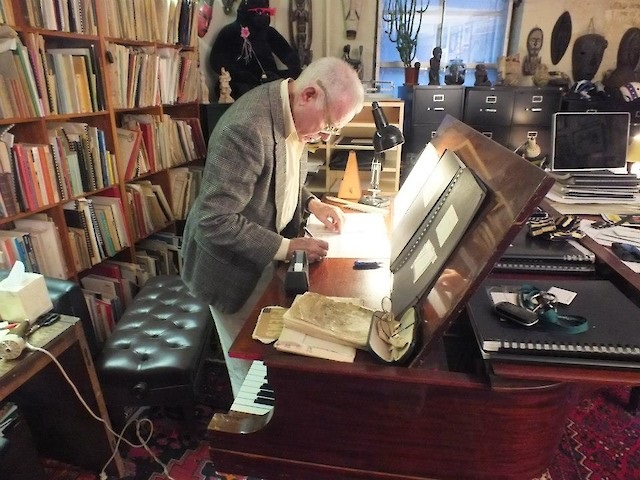
Be First to Comment